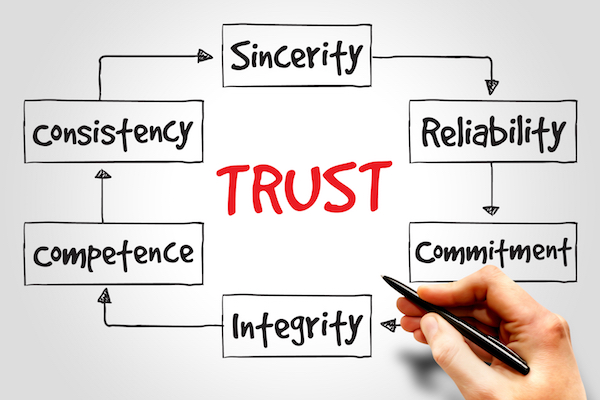
In previous articles, I've described how customer journey mapping is a strategic imperative for organizations committed to designing and delivering better customer experiences. We learned that by detailing all aspects of the customers’ journeys, customer journey mapping tells the entire story of a customer’s experience. Furthermore, this process makes the steps of the customer experience visible for members of an organization so that they can easily understand things from their customers’ perspective, thus helping them to identify and prioritize specific initiatives. This in turn helps to create compelling ways to design and deliver experiences for customers, instead of the internally focused and narrow lenses of siloed operational departments.
Armed with this information, Customer Experience acts as an early warning system that enables an organization to know, before customers tell you, if your operation is reliable or unreliable in performing at key customer intersection points. By establishing a competency for managing the process performance of key touchpoints that make or break customer interactions and relationships, organizations can become proactive at taking actions to delight customers and intervene before customer confidence has been eroded.
Progressive business leaders need to care about reliable operational performance in key customer intersection points. These key inflection points, or moments of truth drive decisions for customers to stay, leave, buy more, and recommend your organization to others.
Customer Experience is a core competency of business and is as important as product development, finance, marketing, and sales. Most organizations have a rigorous process and discipline for how they develop products. But sadly, there is not the same discipline established for developing and bringing customer experiences to life.
To overcome this, customer-focused organizations must have:
- Rigor and discipline for how cross-functional organizational teams explore and understand emerging customer issues and opportunities.
- A clean and clear process for evaluating and understanding what customers need, value, and expect in their experience with your organization.
By doing this, organizations design, develop, and deliver reliable, consistent experiences that delight customers. When customers are delighted, they reward your organization with positive word of mouth and referrals. According to the Keller Fay TalkTrack Report and Word-Of-Mouth Marketing Association, in 2016, 92% of customers worldwide trust recommendations from friends and family more than any form of advertising, up from 74% in 2007.
Rather than seeking heroic ‘wow’ moments, organizations are wise to focus on being reliable and consistent and leverage this as a key differentiator versus their competitors. An excellent example of this is the hotel industry. Imagine that if when you check into a hotel, they ask you what type of pillow you’d like and the kind of chocolate that you’d like at turndown, but when you walk into the room there’s hair in the sink, a make-up smear on the pillows and dirt under the bed. All of the “wow” promised at the front desk and expected upon your entry into the room is lost in the lack of reliability. Evidence to support this comes from The London School of Economics ‘Advocacy Drives Growth’ study that revealed that there is a 300 per cent revenue gain to be had by focusing on reliability versus the “wow” moments.
Reliability and consistency builds trust in any relationship, especially the relationship that organizations have with their customers. It is advisable for organizations to invest in its people and processes to ensure that its customer experiences meet the expectations of customers. As trust increases, so too does the ability to add value for customers, increase their likelihood to return, and to tell their friends how great your organization was at providing a great customer experience.
--
About the Author - James Grieve CMC, MBA
James Grieve is a Certified Management Consultant and partner in Nucleus Strategies, a Kelowna-based consulting firm that specializes in working with businesses in a variety of industries to design great service experiences that delight customers and improve business performance. For over 20 years James' consulting career has been well balanced among: strategic planning, marketing strategy, project management, change management, B2B and B2C sales, customer experience design, and business development, with emphasis on building, nurturing, and sustaining client relationships.
He can be reached at 778.214.6010, or james@nucleus-strategies.com.



